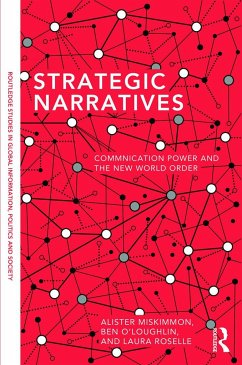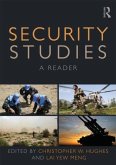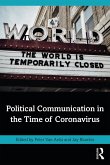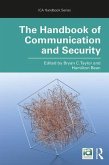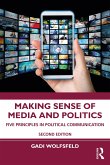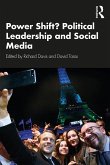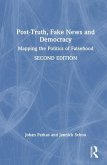Communication is central to how we understand international affairs. Political leaders, diplomats, and citizens recognize that communication shapes global politics. This has only been amplified in a new media environment characterized by Internet access to information, social media, and the transformation of who can communicate and how. Soft power, public diplomacy 2.0, network power - scholars and policymakers are concerned with understanding what is happening.
This book is the first to develop a systematic framework to understand how political actors seek to shape order through narrative projection in this new environment. To explain the changing world order - the rise of the BRICS, the dilemmas of climate change, poverty and terrorism, the intractability of conflict - the authors explore how actors form and project narratives and how third parties interpret and interact with these narratives. The concept of strategic narrative draws together the most salient of international relations concepts, including the links between power and ideas; international and domestic; and state and non-state actors. The book is anchored around four themes: order, actors, uncertainty, and contestation. Through these, Strategic Narratives shows both the possibilities and the limits of communication and power, and makes an important contribution to theorizing and studying empirically contemporary international relations.
This book is the first to develop a systematic framework to understand how political actors seek to shape order through narrative projection in this new environment. To explain the changing world order - the rise of the BRICS, the dilemmas of climate change, poverty and terrorism, the intractability of conflict - the authors explore how actors form and project narratives and how third parties interpret and interact with these narratives. The concept of strategic narrative draws together the most salient of international relations concepts, including the links between power and ideas; international and domestic; and state and non-state actors. The book is anchored around four themes: order, actors, uncertainty, and contestation. Through these, Strategic Narratives shows both the possibilities and the limits of communication and power, and makes an important contribution to theorizing and studying empirically contemporary international relations.
"In today's media-rich environment, projecting a narrative is at the heart of a nation's foreign policy, particularly its public diplomacy. Many actors and institutions are involved in constructing these narratives, and Miskimmon, O'Loughlin, and Roselle present perceptive analysis of how this process works. Strategic Narratives is invaluable reading for those wanting to understand modern diplomacy."
-Philip Seib, University of Southern California
"This fascinating book is both theoretically and empirically rich. The authors demonstrate how strategic narratives are used to persuade and interpret, how they may be contested or formed as uncontested, and how they shape the interactions of diverse actors in the international environment. They illustrate these dynamics in relation to cases as diverse as the 'Rise of China' narrative in the U.S., the 'David and Goliath' narrative in Israel, and the anti-whaling narratives of activists in the 1960s. A must read for students and practitioners who want to understand public diplomacy in the media age."
-K.M. Fierke, University of St. Andrews
"Strategic Narratives breaks new ground in providing a systematic theoretical framework for understanding actors' use of strategic narrative to shape order in this "new world order." Their work also presents fruitful illustrative case studies on narratives, their construction, and use. Summing Up: Highly recommended. Upper-division undergraduate, graduate, research, and professional collections."
-J.D.Gillespie, College of Charleston, CHOICE
International Studies Association: International Communication Best Book Award
-Philip Seib, University of Southern California
"This fascinating book is both theoretically and empirically rich. The authors demonstrate how strategic narratives are used to persuade and interpret, how they may be contested or formed as uncontested, and how they shape the interactions of diverse actors in the international environment. They illustrate these dynamics in relation to cases as diverse as the 'Rise of China' narrative in the U.S., the 'David and Goliath' narrative in Israel, and the anti-whaling narratives of activists in the 1960s. A must read for students and practitioners who want to understand public diplomacy in the media age."
-K.M. Fierke, University of St. Andrews
"Strategic Narratives breaks new ground in providing a systematic theoretical framework for understanding actors' use of strategic narrative to shape order in this "new world order." Their work also presents fruitful illustrative case studies on narratives, their construction, and use. Summing Up: Highly recommended. Upper-division undergraduate, graduate, research, and professional collections."
-J.D.Gillespie, College of Charleston, CHOICE
International Studies Association: International Communication Best Book Award

